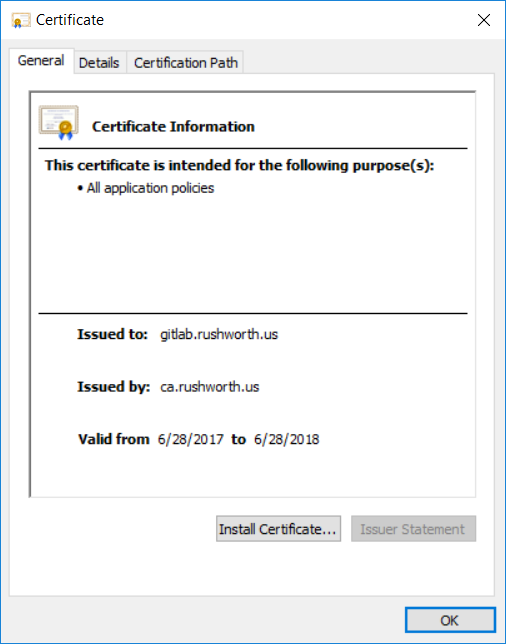I have no idea how exactly I managed this — but I was renewing certificates on a group of servers and had one that would not work. It’s a Java app, and it just threw a generic handshake error. Even adding debugging didn’t add any useful information. It just didn’t work. Turns out my pubilc key and private key files didn’t go together. I didn’t bother figuring out which one I got wrong — I just downloaded the zip file from our cert provider again.
Using openssl to check the modulus of the cert and key — by getting an md5 checksum of the value, it’s a little easier to compare. This public private key pair go together — they’ve got the same modulus. My original files? Not so much — two different values!
linux1570:certs # openssl x509 -noout -modulus -in /opt/elk/opensearch_config/certs/20240722/$(hostname).pem | openssl md5
(stdin)= 52ca3e85fa7cb564dd395a8f801f9bdf
linux1570:certs # openssl rsa -noout -modulus -in /opt/elk/opensearch_config/certs/20240722/$(hostname)-nopass.key | openssl md5
(stdin)= 52ca3e85fa7cb564dd395a8f801f9bdf

